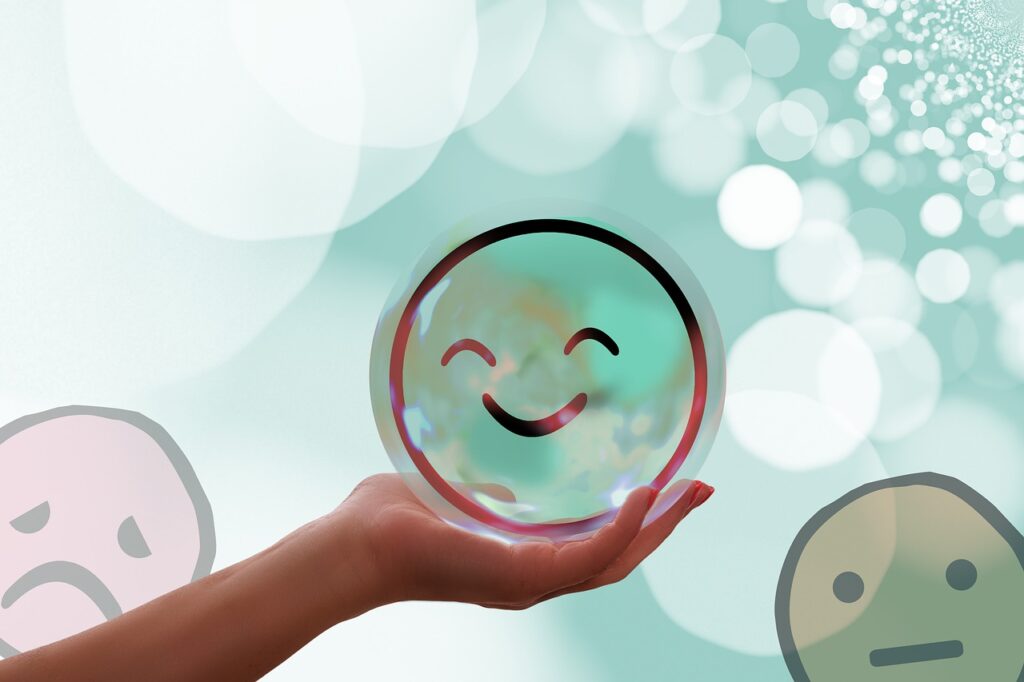Mental health refers to the overall psychological and emotional well-being of a person, including their capacity to manage stress, maintain healthy relationships, and perform daily activities effectively.
Positive thoughts and emotions, a sense of purpose, and the ability to adapt to challenges characterize good mental health, while poor mental state can lead to depression, anxiety, and difficulty focusing, affecting one’s quality of life.
It is crucial to prioritize mental health and seek professional assistance when necessary to preserve a fulfilling and healthy life.
Stick to the end for a simple beginner meditation technique you can start working on right now.
Perception of Mental Health throughout History
The history of mental health refers to how we’ve understood and treated mental health disorders over time. People initially thought that supernatural or demonic possession caused mental illness and treated it through religious practices.
During the Middle Ages, people punished or shunned those with mental illness. It wasn’t until the 18th and 19th centuries that a more scientific and medical approach emerged.
In the 20th century, people developed psychotherapy and medications, but critics condemned mental health institutions for being inhumane.
Today, we recognize sanity as essential, and there is a greater emphasis on community-based care and holistic approaches to treatment.
How important is mental health, really?
Mental health is essential for our overall well-being as it affects our thoughts, emotions, and behavior, and influences our daily life functioning. A healthy mental state helps us cope with stress, maintain positive relationships, and experience happiness.
On the other hand, poor mental health can lead to conditions such as anxiety and depression, causing significant reduction in our quality of life and life expectancy.
Neglecting mental health can have a severe impact on the economy and society, resulting in increased healthcare expenses and decreased productivity.

Investing in mental health is beneficial for personal and professional growth, as it promotes productivity, creativity, and innovation.
It also has positive effects on the economy and society, by reducing the burden on healthcare systems and increasing workforce productivity.
Prioritizing mental sanity through early intervention, effective treatment, and destigmatization can lead to better outcomes for individuals and society as a whole.
Depression and Anxiety: Are they real?
Depression and anxiety are genuine and severe mental health disorders that affect millions of people around the world, and they are not a product of someone’s imagination or a sign of weakness.
These conditions can stem from various factors, including genetics, biological, psychological, and environmental factors.

Depression symptoms include long-lasting feelings of sadness, lack of interest in daily activities, exhaustion, changes in appetite and sleep patterns, worthlessness, and suicidal or self-harm ideation.
Anxiety symptoms include excessive fear or worry, irritability, restlessness, and physical symptoms like sweating, trembling, and heart palpitations.
What to do if I have Depression/Anxiety?
If you are experiencing symptoms of depression or anxiety, it is crucial to seek help from a healthcare professional who can provide a proper diagnosis and create an individualized treatment plan.
Treatment options may include therapy, medication, or a combination of both. Furthermore, making lifestyle changes, such as exercising regularly, eating healthily, and practicing stress management techniques like meditation and deep breathing, can also help manage symptoms.
It is also important to reach out to supportive family and friends and seek social support. Discussing your struggles with loved ones can help reduce feelings of isolation and promote healing.
You can also join support groups or online communities where you can connect with others who are going through similar experiences.
Remember, seeking help is not a sign of weakness but a sign of strength, and with the right treatment and support, you can manage symptoms and improve your overall quality of life.
Mental Health linked with Physical Health?
Mental and physical health are closely linked. Poor mental health can have a negative impact on physical health, while good mental health can contribute to better physical health outcomes.
Chronic stress and anxiety can increase the risk of physical health problems such as heart disease, high blood pressure, and obesity. Similarly, depression can weaken the immune system, making individuals more vulnerable to infections and illnesses.
In contrast, good mental health can promote healthy behaviors, such as regular exercise, healthy eating, and adequate sleep, which can improve physical health outcomes.
Additionally, exercise can help reduce symptoms and conditions such as anxiety and depression, improving overall well-being.
Overall, recognizing the connection between mental and physical health and prioritizing both is essential for optimal well-being.
Simple Meditation for boosting mental health?
Meditation is a powerful tool for improving mental health, but it can be challenging for individuals with depression or anxiety to get started.
People with depression or anxiety may struggle with racing thoughts or a lack of focus, making it difficult to clear their minds and engage in meditation. Additionally, some may feel uncomfortable or overwhelmed with the stillness and introspection required in meditation, which can trigger feelings of anxiety or depression.
However, with practice and patience, meditation can become a valuable tool for managing symptoms and improving the mental state.

A simple meditation practice for individuals with depression or anxiety is deep breathing.
Start by finding a comfortable, quiet space to sit or lie down. Close your eyes and take a slow, deep breath through your nose, focusing on filling your lungs with air.
Hold the breath for a few seconds and then slowly release it through your mouth, feeling the tension and stress leave your body with each exhale.
Repeat this process several times, focusing on your breath and the sensations in your body. You can also try counting your breaths, inhaling for a count of four and exhaling for a count of four, to help improve focus and concentration.
With regular practice, this simple meditation can help reduce stress and anxiety, and improve overall mental well-being.
In summary, mental well-being is a crucial component of overall well-being, and depression and anxiety are real and serious conditions that require proper treatment.
Seeking help from a healthcare professional, engaging in therapy, and making lifestyle changes can all help manage symptoms and improve quality of life.
It is important to recognize the close relationship between mental and physical health and prioritize both for optimal well-being.
Simple, guided meditation can also be a helpful practice for boosting mental health. Prioritizing it and seeking support when needed is a sign of strength and can lead to improved outcomes for individuals and society as a whole.

